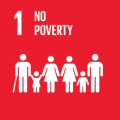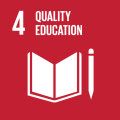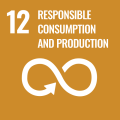A Remarkable 15 Years – Thank You for Being a Part of It
To the investors of Taiwan’s future:
Looking back on these 15 years, it has truly been a remarkable journey. As the 15th anniversary of The Alliance Cultural Foundation (ACF) approaches, I am filled with gratitude for the trust and long-term support of every investor in Taiwan’s future. What began as a dream I pursued alone, with ideas that once seemed unattainable, has now been realized, thanks to your unwavering support, the dedication of the ACF team, and a vision for Huatung’s development and sustainability.
In August 2009, Typhoon Morakot devastated Taiwan, and a flood of donations poured into the affected areas. While donations provided immediate surface level relief, I questioned whether a sustainable plan could maximize the value of these contributions. Around that time, during the Chao Ting-Chen Cultural & Educational Foundation board meeting, with NT$3 million in excess funds, Chair James Chao turned to me and said, “Stanley, please put these funds to good use.” This unexpected donation was like a spark. ACF accepted NT$2 million, and I then invited nine friends to each contribute NT$2 million, with a pledge to continue supporting ACF for five years multiplying the initial fund tenfold.
By the end of December 2009, ACF was established in Taitung. From its beginnings in post-disaster reconstruction to exploring sustainable development, 15 years have flown by. The partners who joined us from the start have remained unwavering in their support. Today, the foundation’s vision for Huatung’s sustainability rests on three key pillars – nurturing local talent for sustainable development, establishing Junyi School of Innovation as a transformative education model, and leveraging the Paul Chiang Art Center to introduce Huatung to the international stage.
If we have achieved anything, perhaps it is in working alongside local communities to amplify Huatung’s strengths and showcase its talents. I have always believed that Huatung, still largely untouched, is Taiwan’s last pristine land, rich in natural beauty, indigenous cultural heritage, and a simple yet grounded way of life. Together with partners and community members, ACF has supported efforts to nurture local industries, connect corporate resources, and provide vocational education – opening pathways for young people to return to their hometowns, pursue their aspirations, and expand their global perspectives. Through close collaboration with local communities, ACF has helped nurture industries, connect corporate resources, and support vocational education creating opportunities for young people to return to their hometowns, pursue their aspirations, and broaden their global outlook. We’ve joined hands with many to bring influential voices and media attention to Huatung, champion oceanic cultural initiatives that highlight Taiwan’s Austronesian heritage, and rethink education through experimental schools led by passionate educators. By opening Junyi School’s space to diverse organizations, we’ve co-hosted themed camps that unlock children’s potential and offer volunteers meaningful, hands-on experience. These collective efforts are all part of a shared vision to build a brighter future for Huatung.
Throughout this journey, we have faced countless challenges and occasional setbacks. However, through perseverance and patience, our local partners have grown into independent teams. They have formed learning communities, delved deeper into the region’s stories, and now confidently share these invaluable cultural treasures with visitors from near and far.
Taitung County makes up just 1% of Taiwan’s population but accounts for 10% of its land. Yet, 55% of its elementary schools have fewer than 60 students, reflecting the severe lack and uneven distribution of educational resources. When the foundation was first established, our initial goal was to find an abandoned elementary school and invite outstanding educators from the arts and cultural fields to offer short-term programs that could inspire indigenous children. However, after spending time in the villages, I came to realize that education is the key to transforming Huatung.
In 2012, with the trust of Venerable Master Hsing Yun and the collective support of many dedicated educators and partners, I took on the responsibility of guiding the development of Junyi School, creating a space where an alternative educational vision could take root and thrive. Together, we introduced Waldorf education at the elementary level, emphasized experiential learning in middle school to foster character, life skills, and problem-solving abilities, and developed a creativity-centered high school curriculum offering diverse learning pathways. A quality boarding program was also established, expanding access to education for children from remote areas. In response to Taiwan’s overreliance on a single-language market, we have collectively worked to promote English education and launched an overseas study program designed to nurture globally-minded students.
I have always believed that arts and culture are the foundation of a civilized society. My deep passion for classical music and the arts led me, along with violinist Hu Nai-Yuan, to co-found Taiwan Connection (TC) in 2004. In 2024, TC Festival celebrated its 20th anniversary. Hu’s dedication and enthusiasm for music have not only won admiration from international musicians but have also inspired countless young artists.
Currently, ACF is fully engaged in the preparation of the Paul Chiang Art Center, which is set for a grand opening in March 2025. My connection with Chiang dates back to my time at Landis Hotels & Resorts, but it was not until he settled in Jinzun in 2008 that we formed a meaningful bond. At that time, Chiang shared his dream of building an art center – an immersive space where visitors could experience the harmony between art, nature, and architecture. More than a decade ago, this vision felt distant – but it began to take shape thanks to the remarkable generosity and selflessness of his spouse, Claire Fan, whose donation of land and artworks laid the foundation for the art center. Additionally, the timely support of several art-loving entrepreneurs played a crucial role in helping us overcome key challenges throughout the center’s development – a gesture for which we remain deeply grateful.
These past 15 years have been long, filled with continuous learning and growth. While I have always held a clear vision, I’ve come to understand that true progress depends on the alignment of timing, conditions, and collective effort. Huatung has long been a wellspring of artistic and cultural energy, yet it has lacked an internationally recognized platform. Perhaps the Paul Chiang Art Center can serve as a gateway opening a path for Huatung to step onto the global stage.
Looking back, dreams that once felt distant are steadily becoming reality. Your support has been more than personal encouragement – it is a meaningful affirmation of this collective journey. I believe the ripple effects of our shared efforts will continue to grow, and in time, we will witness the full impact of what we’ve built together. Once again, I offer my deepest gratitude and heartfelt respect.
Stanley C. Yen
Chairman, The Alliance Cultural Foundation





